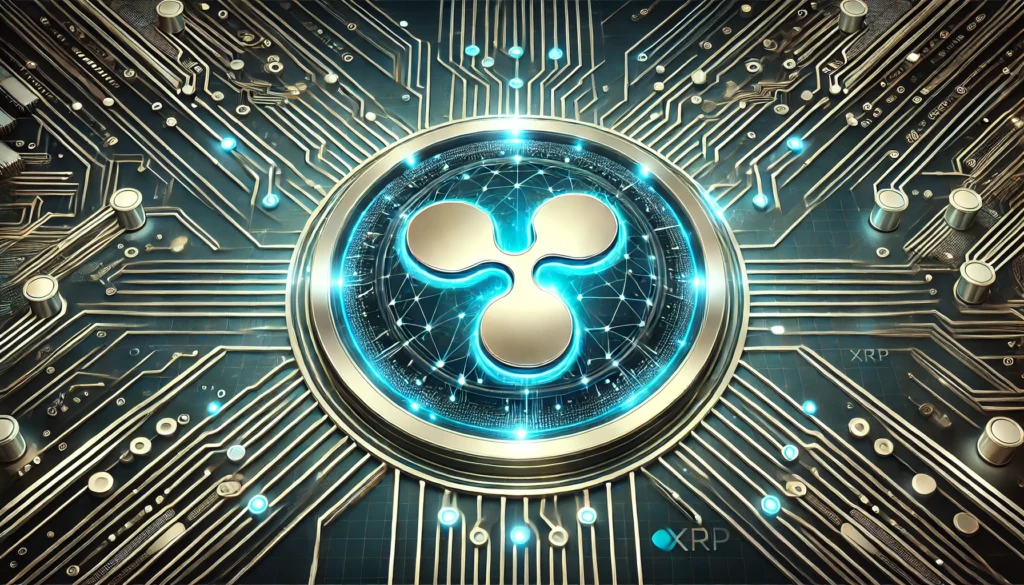
In the fast-paced world of cryptocurrencies, Ripple (XRP) stands out as a unique and transformative project. Unlike many other digital assets, Ripple is not just a cryptocurrency; it’s a technology designed to revolutionize the global financial system. With its focus on enabling fast, low-cost, and cross-border payments, Ripple has positioned itself as a bridge between traditional finance and the blockchain revolution. But what exactly is Ripple, and why is it making waves in the financial industry?
What is Ripple (XRP)?
Ripple is both a digital payment protocol and a cryptocurrency (XRP). Founded in 2012 by Ripple Labs, the platform aims to facilitate seamless, real-time, and cost-effective international money transfers. Unlike Bitcoin, which was created as a decentralized alternative to traditional money, Ripple is designed to work alongside existing financial systems, particularly banks and payment providers.
The native cryptocurrency of the Ripple network, XRP, serves as a bridge currency for facilitating transactions between different fiat currencies. It eliminates the need for pre-funded accounts in destination currencies, reducing liquidity costs and settlement times. Ripple’s technology, including its consensus ledger and payment protocol, has been adopted by major financial institutions worldwide, making it one of the most enterprise-friendly blockchain solutions.
Why Ripple (XRP) Matters
1. Revolutionizing Cross-Border Payments
Traditional cross-border payments are slow, expensive, and often inefficient. Ripple’s technology enables near-instant transactions at a fraction of the cost, making it a game-changer for remittances and international trade.
2. Partnerships with Financial Institutions
Ripple has forged partnerships with over 300 financial institutions, including Santander, American Express, and Standard Chartered. These collaborations demonstrate the real-world utility of Ripple’s technology in the global financial system.
3. Scalability and Speed
The Ripple network can process 1,500 transactions per second (TPS), far surpassing Bitcoin’s 7 TPS and Ethereum’s 30 TPS. This scalability makes it ideal for high-volume financial transactions.
4. Liquidity and Cost Efficiency
XRP acts as a bridge currency, enabling financial institutions to avoid the need for multiple nostro accounts. This reduces liquidity costs and improves capital efficiency.
5. Regulatory Compliance
Ripple has worked closely with regulators to ensure compliance with financial laws, making it a trusted partner for banks and payment providers.
Ripple’s Challenges and Criticisms
Despite its successes, Ripple has faced its share of challenges. The most significant is its ongoing legal battle with the U.S. Securities and Exchange Commission (SEC), which alleges that XRP is an unregistered security. This lawsuit has created uncertainty around XRP’s regulatory status and impacted its price. However, Ripple has continued to expand its global partnerships and remains a key player in the blockchain space.
Where to Buy, Trade, and Hold Ripple (XRP)
If you’re interested in investing in Ripple (XRP), here’s a comprehensive guide to getting started:
1. Where to Buy Ripple (XRP)
- Cryptocurrency Exchanges: XRP is available on major exchanges like Binance, Coinbase, Kraken, and Bitstamp. These platforms allow you to purchase XRP using fiat currency or other cryptocurrencies.
- Peer-to-Peer (P2P) Platforms: Websites like LocalBitcoins and Paxful also offer XRP, allowing you to buy directly from other individuals.
- Ripple-Powered Apps: Some apps, like Uphold and Bitso, specialize in XRP and other cryptocurrencies.
2. Where to Trade Ripple (XRP)
- Spot Trading: Platforms like Binance, Kraken, and Huobi offer spot trading for XRP, allowing you to buy and sell at current market prices.
- Derivatives Trading: For advanced traders, exchanges like Bybit and BitMEX offer futures and options trading for XRP.
- Decentralized Exchanges (DEXs): Platforms like Sologenic and XRP Toolkit enable decentralized trading of XRP.
3. Where to Hold Ripple (XRP)
- Hardware Wallets: For maximum security, store your XRP in a hardware wallet like Ledger or Trezor. These devices keep your private keys offline, protecting your funds from hackers.
- Software Wallets: Mobile and desktop wallets like XUMM and Exodus offer a balance of convenience and security.
- Custodial Wallets: Exchanges like Binance and Coinbase provide custodial wallets, but these are less secure than self-custody options since you don’t control your private keys.
- Paper Wallets: For long-term storage, you can generate a paper wallet using tools like Ripple Paper Wallet.
The Future of Ripple (XRP)
The future of Ripple is closely tied to its ability to navigate regulatory challenges and expand its global partnerships. If Ripple can resolve its legal issues with the SEC, it has the potential to become a cornerstone of the global financial system. Its focus on interoperability, scalability, and cost efficiency makes it a strong contender for widespread adoption in the banking and payments industry.
Moreover, Ripple’s ongoing development of new products, such as RippleNet and On-Demand Liquidity (ODL), demonstrates its commitment to innovation. As the world moves toward a more interconnected and digital economy, Ripple’s role as a bridge between traditional finance and blockchain technology will only grow.
Conclusion: A New Era of Financial Connectivity
Ripple (XRP) is more than just a cryptocurrency; it’s a vision for a more efficient, inclusive, and connected global financial system. By addressing the pain points of traditional cross-border payments, Ripple has positioned itself as a leader in the blockchain revolution. Whether you’re an investor, a technologist, or simply curious about the future of finance, Ripple offers a compelling glimpse into what’s possible when innovation meets real-world utility.
As we stand on the brink of a new era in finance, Ripple reminds us that the future is not just about decentralization—it’s about creating solutions that work for everyone. The question is no longer whether Ripple will succeed, but how far its influence will extend in shaping the world of tomorrow.
Join the Revolution.
Ripple is not just a cryptocurrency; it’s a movement toward a more connected and efficient financial system. Are you ready to be part of the future? Start by buying, trading, and securely holding your XRP today!
